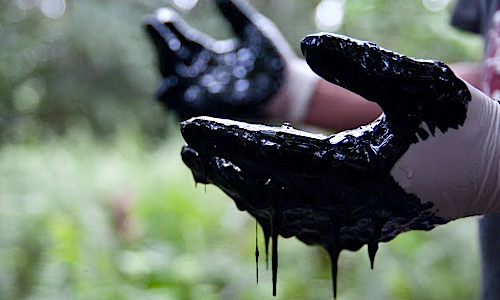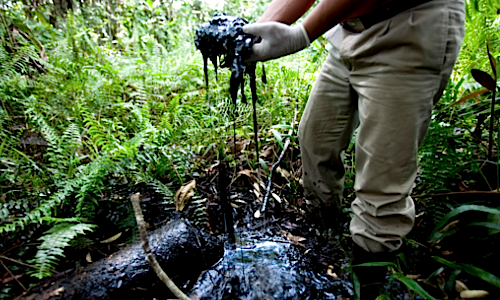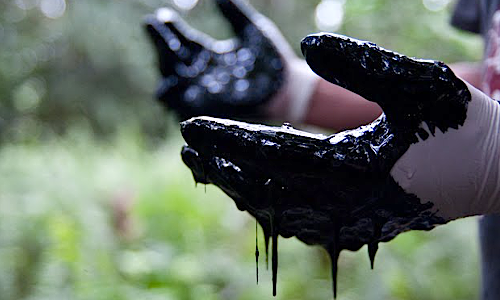
U.S. Judge Sides With Chevron in Case Against Ecuadorians, Allows Oil Giant to Evade Justice

Amazon Watch stands with Ecuadorian communities in rejecting a misguided judgment delaying justice for some 30,000 indigenous people and farmers who continue to suffer from the company’s toxic legacy in the Amazon rainforest. The decision—handed down yesterday by New York District Court Judge Lewis Kaplan—also underscores the threat that well-financed corporations pose to justice and the rule of law with their ability to spend hundreds of millions of dollars on efforts to attack victims and their allies.
Since Chevron filed the bogus RICO action, Ecuadorians and their allies have been relentlessly attacked by the company’s army of lawyers and PR agents. These actions were unrelated to real events in Ecuador, setting a dangerous precedent for corporate attacks on constitutional rights.
“This decision also effectively outlaws core activity protected by the First Amendment such as bringing lawsuits, holding protests, issuing press releases and engaging public officials,” said Deepak Gupta, attorney for the appellate team in response to the verdict. “This is particularly appalling given that this case is about holding a corporation accountable for refusing to clean up decades of toxic pollution in the Amazon.”
Gupta, formerly of Public Citizen, has argued on behalf of plaintiffs in several recent Supreme Court cases, including the high-profile arbitration challenge AT&T Mobility v. Concepcion.
For well over a decade, Amazon Watch has stood with those affected by Chevron’s deliberate dumping of 18 billion gallons of toxic wastewater into the Amazon rainforest. Despite admitting to the crime, Chevron has refused to take responsibility for its actions, its “clean-up” efforts proven to be a sham by its own evidence. The company’s role as sole operator and designer of the extraction system in Ecuador makes it solely liable for its actions, which is why the communities in Ecuador sued Chevron themselves. Despite these facts Chevron has continued to vilify the communities who continue to suffer and die from pollution.
Chevron’s RICO suit and its attack on the victims has been condemned by some of the largest environmental and social justice organizations in the U.S., including the Sierra Club, and more than 100,000 U.S. citizens have written to the U.S. Senate asking for an investigation of Chevron’s tactics to suppress free speech.
Yesterday’s verdict is an example of Chevron buying and bullying its way to a verdict with 60 law firms and thousands of legal professionals hell-bent on exhausting the Ecuadorians and their allies. Such a verdict will ultimately prove useless in Chevron’s efforts to evade justice.
Chevron fought for years to have the case moved from a U.S. court to Ecuador and Judge Kaplan—who first recommended that Chevron file the case—holds no authority over Ecuadorian courts. Nor can he issue a ruling preventing the Ecuadorian plaintiffs from collecting on an enforceable verdict outside of the U.S. Furthermore, Kaplan’s current order is effectively indistinguishable from an injunction issued by Kaplan in the case two years ago, which was struck down on appeal.
Visit EcoWatch’s ENERGY page for more related news on this topic.

 233k
233k  41k
41k  Subscribe
Subscribe 


